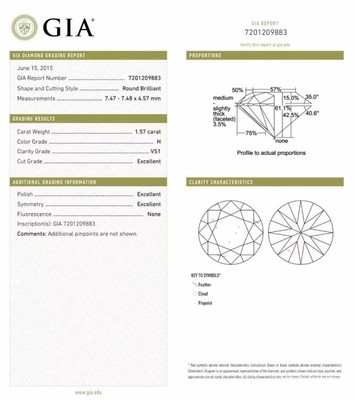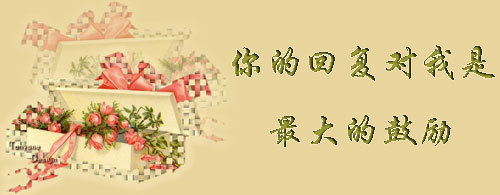反义疑问句的回答
http://wenku.baidu.com/link?url=KR_6IG3fOLazHDuyUy0xhBE1YduOcUCm7260jU7fMPXKVgOdNBad0cf_dhQ6Oyh5DiPihMXK5Iec5wyLo3DYH7vhiDdxpnulxXJEEdU6W17
1.肯定反意疑问句的回答当陈述部分为否定式,反意疑问句为肯定式时,其回答往往与汉语不一致,需特别引起注意:
"It isn’t cheap, is it?" "Yes, it is."“它不便宜吧?”“不,很便宜。”
"He doesn’t love her, does he?" "No, hedoesn’t."“他不爱她,是吗?”“是的,他不爱她。”
2.否定反意疑问句的回答当陈述部分为肯定式,反意疑问句为否定式时,其回答一般不会造成困难,一般只需照情况回答即可:
"It’s new, isn’t it?" "Yes, it is."“是新的,对吗?”“对,是新的。”
"He wants to go, doesn’t he?" "No, he doesn’t."“他想去,对吗?”“不,他不想去。”
3.回答反意疑问句的原则回答反意疑问句通常应根据实际情况来确定,如有人问你Youare asleep, aren’t you? 你应回答No, I’m not.因为既然你能回答,肯定你还没有asleep。但如果别人问你 You aren’tasleep, are you?(你还没有睡着,对吗),你也只能回答No,I’m not.(是的,还没有睡着),而不能回答为Yes, I’mnot. 也不能回答成 Yes, I am.
比如这题:Sallydoesn't like pop music ,does she?------_____. she is a fan ofclassical music.
A.No,she doesn't B.Yes,she does C.No,she does D.Yes,she doesn,t答案:A
AB级考点:反义疑问句由两部分组成:前一部分是一个陈述句,后一部分是一个简短的疑问句,两部分的人称时态应保持一致。
1.当陈述部分的主语是I,而句子又用来征询对方的意见时,附加疑问句中的主语用you。如: I find English very interesting, don’tyou? I don’t like that film, doyou? 2.当陈述部分的主语是everybody,everyone, someone, nobody, no one,somebody等合成代词时,附加疑问句中的主语通常用they。但亦可用he,尤其是nobody,no one等作主语,具有否定概念时。如: Somebodyphoned while I was out, didn’tthey? Everyone enjoyed theparty, didn’t they? Nobody wantsto go there, doeshe? 3.当陈述部分的主语是不定代词everything,nothing, anything, something时,附加疑问句中的主语一般用it,不用they。如: Everythingseems all right now, doesn’tit? Nothing is kept in goodorder, is it? Something must bedone to stop pollution, isn’tit? 4.当陈述部分的主语是指示代词this,that或these,those时,附加疑问句中的主语分别用it和they。如: This is important, isn’tit? That isn’t correct, isit? These are your friends Tomand Jack, aren’tthey? 5.如果陈述部分是以代词one作主语,附加疑问句中的主语在正式场合用one,非正式场合用you,在美国英语中,在非正式场合还可以用he。如: One can’t be too careful, canone?或can you? Oneshould do his duty, shouldn’the? 6.如果陈述部分用I’m…结构,附加疑问部分一般用aren’tI。如: I am strong and healthyaren’tI。 7.当陈述句为therebe结构时,附加疑问句中的主语也用there。如: There’sno help for it, isthere? There’s something wrong,isn’tthere? 8.陈述部分带有seldom,hardly, never, rarely, few, little,nowhere,nothing等否定词或半否定词时,附加疑问部分的动词用肯定形式。如: Bobrarely got drunk, did he? Fewpeople know him, do they? Sheseldom goes to the cinema, doesshe? 如果陈述部分的否定词带有否定前缀,那么,该陈述部分作肯定处理,附加疑问部分一般仍用否定形式。如: He was unsuccessful, wasn’the? Tom dislikes the book,doesn’the? 9.当陈述部分为主从复合句时,附加疑问部分一般应与主句的主语和谓语动词保持对应关系。如: She says that I did it, doesn’tshe? I told them not everybodycould do it ,didn’tI? 但当陈述部分的主语是I,谓语是think,believe, suppose,expect这类动词时,附加疑问部分则往往与从句中的主语和谓语动词保持对应关系,但要注意否定的转移。 I suppose that he’s serious isn’the? I don’t think she cares,doesshe? 10.当陈述部分是并列句,附加疑问句则需和就近的分句的主语和谓语一致。如: Xiao Lin has been writing letters all afternoon buthe should finish them now, shouldn’t he?
11.在由“祈使句+附加疑问”构成的附加疑问句中,附加疑问部分一般用willyou, won’t you, would you,有时也可用can you, can’t you,why don’t you, couldyou等。如: Don’t open the door,will you? Give me somecigarettes, can you? Take arest, why don’tyou? 但是,以let’s开头的祈使句,附加疑问部分用shallwe;以let us开头的祈使句,如果含义是allowus,不包括听话人在内,疑问部分用willyou。如: Let’s have a basketballmatch this afternoon, shallwe? Let us go out for a rest,willyou? 12.当陈述部分带有情态动词must表示“必须”时,疑问部分用mustn’t。如: You must work hard next term, mustn’tyou? I must answer the letter,mustn’tI? 但若表推测这层含义时,不能用must,而要根据陈述部分的不定式结构(即must之后的动词)以及含义采用相应的动词形式。如: You must have made a mistake, haven’tyou? They must have seen thefilm last week, didn’t they? Hemust be in the library, isn’the? 13.当陈述部分含有情态动词usedto时,疑问部分可用usedn’t或didn’t。如: The old man used to smoke, didn’the?或usedn’the? Tom used to live here,usedn’t he?或didn’the? 14.当陈述部分带有情态动词oughtto时,疑问部分用oughtn’t或shouldn’t。如: He ought to know the answer, oughtn’the? We ought to read this book,oughtn’t we?或shouldn’twe? 15.当陈述部分含有hadbetter时,疑问部分用had。 如: You’dbetter finish your homework now, hadn’tyou? 16.感叹句后的附加疑问句的谓语动词需用be的现在时,且常用否定形式。如: What a clever boy, isn’the? What a lovely day, isn’tit? 17.陈述句子中的主语为动词不定式短语、动名词短语或其他短语时,疑问部分的主语通常用it。如: Learning how to repair motors takes a long time,doesn’t it? Between six andseven will suit you, won’tit? Where to hold the meetinghas not been decided, hasit? 18.在口语和非正式文体中,为了加强语气,只是表示某种惊奇、怀疑、反感、讽刺等感情而并不是为了寻求回答,这时前后两部分的肯定、否定是一致的。如: Oh, he is a writer, ishe? You’ll not go, won’tyou? 19.陈述句中的谓语动词是wish,表示愿望时用may,且用肯定形式。如: I wish to have a chance to learn English, mayI? 20.当陈述部分带有表示“所有”含义的动词have(has)时,疑问部分既可用have形式,也可用do形式。如: You have a new bike, haven’tyou(或don’tyou)? She doesn’t have any moneyin her pocket, does she?
新目标高中语法之反意疑问句与情态动词
http://wenku.baidu.com/link?url=9uu78uRoQz0Ui_EYsKSNtGRT8baT2CGNtdkxUj3Mol-S-kvZtc2fFB3CJvRV9HKsnSP8KnEW8GqErIzXC0LTkaUFeEzfVDF9iE2oS_fxWoa
一、前面句子为肯定时,后面反意问句用否定。反,前面句子为否定时,后面句子用肯定。
Eg: He can’t swim, can he?
注:当前面句子中有no/never/seldom/hardly/few/littlenowhere/nothing等否定意义的副词出现时,反意问句应用肯定。但如果前面句子中有加前缀或后缀后,而表示否定意义的词时(如:careless, impossible等时),反意问句应用否定。
Eg: 1) He seldom goes to see a film, ____?
2) He is always careless, ______?
二、当前面句子中有have(has/had) to 时,反意问句应用do的相应的形式。
Eg : They had to leave early, ______?
三、当前面句子中有used to 时,后面应用usedn’t … 或didn’t …
eg: He used to live in the countryside,_____?
四、当前面句子中有 ought to 时, 应用oughtn’t … 五、当前面句子中,有must 时,
1.在must表示推测时,不用mustn’t,而根据句子所表示的时态来确定。
Eg: 1) You must be tired, _______?
2) He must have done it last night, _______?
3) Tom must have been to Shanghai before,_______?
2.在must表示禁止时,应用mustn’t.
eg: You mustn’t walk on grass, _____?
3.在must表示有必要时,应用needn’t.
eg: You must go home right now, ____? 六、当前面句子的主语是everyone/everybody/nobody/one/none等不定代词时,反意问句的主语应用they;当前面句子的主语是something/everything/nothing等不定代词时,反意问句的主语应用it.
七、 当主句为祁使句时, 一般情况:1)肯定的祁使句:willyou/won’t you?
a)表示要求某人做某事时:will you?
b)表示征求某人意见时:won’t you?
2) 否定的祁使句:will you?
特例:
1) Let us go out for a walk, ______?
2) Let’s go out for a walk,_______?
八、当主句存在否前移时,反意问句应根据从句的时态、人称,主句的肯否定。
Eg: I don’t think he can finish his homework in time,_______?
情 态 动 词
一、一般疑问句中几个情态动词的问与答
1. Need I/he/…?
Yes,you/he/…must.(不用need)
2. Must I/ he/…?
No,you/he/…needn’t/don’t(doesn’t,won’t)haveto.(不用mustn’t)
3. May I/ he/…?
No,you/ he/…mustn’t.(少用maynot)
4. Could(Can)you…?
Yes,I can (不用could)
5. Shall I/she/ he…?
No,you(she,he)needn’t/can’t/mustn’t
二、情态动词表“推测”
1.can,may,must使用的句式:
1)肯定陈述句中:must表“肯定、必定、一定”意,may/might表“也许,或许”意。
2)否定陈述句中:can’t/couldn’t表“不可能”意,maynot/might not表“也许不、可能不”意。
3)疑问句中:只能用can或could,不能用must,may或might。
注意:表推测的could,might并不是指过去时间,而是表示比can,may把握性略小些的情况。
2.对目前状态的推测:
1)must/may/might/can/could+be+表语
例如:She must be a teacher.她肯定是老师。Shecan’t/couldn’t be adoctor.她肯定不是医生。 He may not/might not be adoctor.他可能不是医生。
2)must/may/might/can/could+一些不能用于进行时的静态动词(如:have,exist,live,like,hate,own,belongto等)
例如:She must have her own car,for she has a lot ofmoney.
That kind of bird may live in the valleys.
3.对目前正在发生的事情进行推测:
句式:must/may/might/can/could+be doing
例如:They must be waiting for us.他们肯定正在等我们。
She may/might be doing her homework.她可能正在做作业。
Can/Could he be playing football?他会正在踢足球吗?
4.对已发生的事情进行推测:
句式:must/may/might/can/could+have done
例如:There’s no lignt in the room. They must havegone to bed./She knows nothing about the film. Shecan’t/couldn’t have seen it./Can/Couldhe have been a doctor?/He may/might(not)have been a teacher./Theymust have been watching TV at nine last night./Can/Could she havestayed in Beijing last year?
注意:will have done句式也可表“肯定/可能已经…”推测意。
例如:He will have learned advanced mathematics,for he knows alot about it. 他肯定/可能学过高等数学,因为他对此懂得很多。
三、“情态动词+have done”用法
1.should/ought to +have done,意“本应该…”,含有责备或后悔意。
例如:You should have come here a little earlier./I ought tohave sent him to school./
2.shouldn’t/oughtn’tto+have done,意“本不应该”,含有责备或后悔意。
例如:You shouldn’t have watered the flower./Ioughtn’t to have scolded her for such a smallthing.
3.might have done,意“过去可能做”;could havedone意“本能够做”,两者都含有委婉批评或遗憾之意,也可表对过去情况的推测。
例如:He might have gone to Nanjing with Professor Wang.lastweek,but he was ill.上星期他本可以和王教授一起去南京的,可他病了。We could have finishedthe work ahead of time.我们本来是能够提前完成工作的。
四、情态动词在反意疑问句中的用法
1.“肯定祈使句+附加问句”结构,附加问句常用will/would/won’tyou形式。
例如:Stand still,will/would/won’t you?
2.“否定祈使句+附加问句”结构,附加问句常用will/would you形式。
例如:Don’t watch TV,will/would you?
3.Let’s…,shall we? ; Letus…,will/won’t you?
4.含有must句子的反意问句
1)must表示“必须”时,附加部分常用needn’t,也可用mustn’t.例如:Hemust go with you,needn’t/mustn’the?
2)mustn’t表“一定不能”时,附加部分用may.例如:Shemustn’t leave,may she?
3)must表“一定、想必”推测意时,附加部分主要有下列几种形式:
A.He must be an engineer,isn’t he?They must bewriting now,aren’tthey?(这类句子问句前部分含“mustbe…”或“must be doing…”。)
B.She must have a car/live there, doesn’tshe?
C.He must have seen the film,hasn’the?(这类句子问句前部分的谓语为must have done,句子无具体过去时间状语。)
D.He must have seen the film last week,didn’the?(这类句子问句前面部分的谓语为must have done,句子有具体过去时间状语。)
E.Mother must have been shopping then,wasn’tshe?(前面部分谓语为must have been doing。)
5.含有may表推测的句子,其反意问句形式与must表推测的反意问句形式相似。
例如:She may have finished her homework,hasn’tshe?
五、几组词语辨析
1.must与have to:must强调说话者的主观看法,haveto强调客观需要,表示“不必”意要用needn’t或don’t/didn’t/won’thave to,不能用mustn’t。
2.can/could与be ableto:can多用于现在时,也可用于将来时,could只用于过去时,be ableto可用于各种时态。表示“过去经过努力而做成(或没做成)”要用was/were(not) able to,而不用could(not)。例如:He worked hard,but he wasn’t ableto pass the exam.
3.will,would,usedto:都可表“习惯”意。①will表示不受时间限制的习惯性动作。如:Fish will die out ofwater./ She’ll sit for hours without sayinganything.
②would表示过去习惯性的动作,但不涉及与现在情况的对比。如:He would walk by the river inthe morning.注意:would后不能跟表状态动词。例如不能说He would be late for school lastyear. ③used to表示过去习惯性的动作或状态,但这种习惯现在已不存在了。如:He used to get up early.He used to be late for school.
一、反意疑问句练习
1. If you want to learn about Liu Xiang, let me know,_____ you?
A. don’t B. will C. shall D. do
2. Mrs. Black doesn’t believe so many people are sufferingfrom this tsunami, _____?
A. aren’t they B. are they
C. doesn’t she D. does she
3. I don’t think he could have done such a stupid thing lastnight, _____?
A. do I B. could he C. did he D. has he
4. --- Why is Tom absent?
--- He must be sick, _____?
A. isn’t he B. must he C. is he D. mustn’t he
5. It’s the first time that she has been to the UnitedStates, _____?
A. isn’t she B. isn’t it
C. hasn’t she D. hasn’t it
6. When the disaster struck, many people had no time to escapebeing killed, _____?
A. didn’t they B. did they
C. did it D. didn’t it
7. Nowadays in China some officers are unfit for theirpositions, _____?
A. are they B. aren’t they
C. don’t they D. do they
8. Protecting the South China tiger from dying out takes along time, _____?
A. doesn’t it B. don’t they
C. does it D. do they
9. You’d better find some information about Nike’s “Chamberof Fear” advertisement, _____?
A. wouldn’t you B. had you
C. hadn’t you D. should you
10. Most students used to listen to their teachers in classand completely obey their teachers, _____?
A. used they B. weren’t they
C. didn’t they D. did they
11. I am very excited to know “S.H.E.”is going to sing at theCCTV Spring Festival Soiree, _____?
A. aren’t I B. am not I
C. aren’t you D. are you
12. I wish all the Chinese citizens to remember the NanjingMassacre forever, _____?
A. don’t I B. can I C. may I D. may you
13. Let’s take action together to make our city morebeautiful, _____?
A. won’t we B. don’t we C. shall we D. won’t you
14. There’s not much news about the missing mountain climbersin today’s newspaper, _____?
A. isn’t it B. is it C. isn’t there D. is there
15. So you don’t want to enter for the 2005 college entranceexamination, _____?
A. don’t you B. do you
C. won’t you D. will you
16. What a terrible tsunami, _____?
A. aren’t they B. are they
C. isn’t it D. is it
17. Everyone will believe New FIFA World FootballerRonaldinho is a fighter against racism, _____?
A. will he B. won’t everyone
C. won’t he D. will they
18. The rescue team must have searched for the missingvisitors two days ago, _____?
A. mustn’t they B. haven’t they
C. didn’t they D. hadn’t they
19. Something about stopping the strike will have to be done,_____?
A. won’t it B. will it C. has it D. does it
二、情态动词练习
1. I didn’t see her in the meeting room this morning. She_____ at the meeting.
A. mustn’t have spoken B. shouldn’t have spoken
C. needn’t have spoken D. couldn’t have spoken
2. One ought _____ for what one hasn’t done.
A. not to be punished B. to not be punished
C. to not punished D. not be punished
3. If you really want yourself to be in good health, you must___ always ___ so much.
A. not; be smoking B. not; have smoked
C. not; to smoke D. be not; smoking
4. With so much work on hand, you _____ to see the game lastnight.
A. mustn’t go B. shouldn’t go C. couldn’t have gone D.shouldn’t have gone
5. Most of the students felt rather disappointed at theEnglish party. They say that it ______ better organized.
A. had been B. had to be C. must have been D. could havebeen
6. I’m surprised that he _____ in the exam.
A. should fail B. would have failed C. may have failed D.should have failed
7. The little girl _____ there alone.
A. not dare go B. dares not go C. dare not go D. dare not togo
8. “Must we do it now?” “No, you _____.”
A. won’t B. needn’t C. can’t D. don’t
9. He said he would rather not _____ it right now.
A. doing B. to do C. do D. to be doing
10. You _____ to the meeting this afternoon if you havesomething important to do.
A. needn’t to come B. don’t need come C. don’t need coming D.needn’t come
11. Put on more clothes. You _____ be feeling cold with onlya shirt on.
A. can B. could C. would D. must
12. I _____ play football than baseball.
A. would rather B. had better C. like better D.prefer
13. I thought you _____ like something to read, so I havebrought you some books.
A. may B. might C. could D. must
14. There was plenty of times. She _____.
A. mustn’t have hurried B. couldn’t have hurried
C. must not hurry D. needn’t have hurried
15. The plant is dead. I _____ it more water.
A. will give B. would have given C. must give D. should havegiven
16. You _____ return the book now. You can keep it till nextweek if you like.
A. can’t B. mustn’t C. needn’t D. may not
17. It’s still early, you _____.
A. mustn’t hurry B. wouldn’t hurry C. may not hurry D. don’thave to hurry
18. Please open the window, _____?
A. can’t you B. aren’t you C. do you D. will you
19. We _____ for her because she never came.
A. mustn’t have waited B. shouldn’t have waited
C. mustn’t wait D. needn’t wait
20. — May I stop here? — No, you_____.
A. mustn’t B. might not C. needn’t D. won’t
21. It’s a fine day. Let’s go fishing, _____.
A. won’t we B. will we C. don’t we D. shall we
22. I didn’t see her in the meeting room this morning. She_____ at the meeting.
A. mustn’t have spoken B. shouldn’t have spoken
C. needn’t have spoken D. couldn’t have spoken
23. — Please don’t make a noise.
— _____. I’ll be as quiet as a mouse.
A. Yes, I won’t B. No, I won’t C. No, I will D. Yes, Iwill
24. The young man has made so much noise that he _____ nothave been allowed to attend the concert.
A. could B. must C. would D. should
25. — Where is John? — He _____in the library.
A. should be B. must be C. can be D. must have been
26. Since the road is wet this morning, _____ lastnight.
A. it must rain B. it must be raining
C. it must have rained D. it must have been rain
27. — Will your brother stay hometonight?
— I’m not quite sure. He _____ to the cinematonight.
A. must go B. can go C. may go D. may be going
28. She’s already two hours late. What ______ to her?
A. can have happened B. may have happened
C. should have happened D. must happen
29. You must be a writer, _____?
A. mustn’t you B. are you C. must you D. aren’t you
30. I got up early that morning, but I _____ so because I hadno work to do.
A. mustn’t have done B. didn’t need to do
C. needn’t have done D. can’t have done
31. He _____ have come here yesterday, but he didn’t.
A. could B. should C. ought to D. all the above
32. I missed the last bus, so I _____ go home onfoot.
A. must B. have to C. may D. had to
33. He ought to win the first prize, _____ he?
A. oughtn’t B. shouldn’t C. mustn’t D. both A and B
34. Everyone _____ do his best for the modernizations of ourcountry.
A. can B. may C. should D. might
35. Let’s clean our classroom, _____?
A. will you B. don’t we C. shall we D. do you
36. Let us play basketball, ______?
A. will you B. don’t we C. shall we D. do you
37. He asked me for this book many times. Please tell himthat he _____ have it tomorrow.
A. must B. may C. shall D. both B and C
38. “Your phone number again? I _____ quite catch it.” “It’s9568442.”
A. didn’t B. couldn’t C. don’t D. can’t
39. Mother _____ us stories when we were children.
A. was used to tell B. is used to telling C. used to tell D.used to telling
40. She would rather _____ more money on books _____ onclothes.
A. cost … not B. to spare … don’t C. pay … than D. spend …than
1. D. must表示推测时不用于否定句;shouldn’t have donesth. 表示“本不应该做某事而实际上做了”;needn’t have done sth.表示“本来不必做某事而实际上做了”;couldn’t have done sth.表示“不可能做过某事”。根据题意,选D。
2. A. 情态动词ought后要接带to的不定式,ought to do的否定式是ought not to do,所以答案是A。
3. A. must not always be doing sth.表示“不要老是做谋事”,含有埋怨、指责、反感等感情色彩。
4. D.题中的A项和B项都指现在情况;couldn’t havegone表示“不可能去过”;shouldn’t havegone表示“本不应该去而实际上去了”。根据题意,选D。
5. D. could have done sth.表示“本来能够做某事而实际上未能做成”。
6. D.should可用于表示惊奇、感叹、不满等感情色彩的句子,如指过去的动作,则要用should havedone sth. Would 和 may通常不带感情色彩。
7. C.题中的dare是情态动词,后接不带to的不定式,主要用于疑问句、否定句和条件句中。
8. B.must开头的疑问句,否定答语用needn’t或don’t haveto。
9. C. wouldrather通常也视为情态动词(组),后接动词原形,其否定形式为would rathernot。
10. D.need作为情态动词,其否定形式为needn’t;作实义动词时,其否定形式为don’t(doesn’t) need to do。
11. D. must用在肯定句中表推测时,语气比could,would等肯定得多。此处“must +不定式进行式”表“想必正在……”之意。
12. A. would rather … than…,意为“宁愿(做)……而不(做)……”。
13. B. 由句意可知,这是对过去发生的事情不太有把握的推测。
14. D. needn’t have done意为“过去不必做而做了某事”。
15. D. should have done表示“过去应该做而没有做某事”。
16. C. can’t(不能),mustn’t(不准),maynot(不可以),均不合题意。
17. D. don’t have to = needn’t
18. D.will用在第二人称的疑问句中,为询问(或征求)对方的意愿或向对方提出请求之意。
19. B. should not havedone表示“过去不应该做而做了某事”,含有“后悔”、“责备”、“劝告”,“批评”之意。
20. A. may开头的疑问句,否定答语常用mustn’t。
21. D.疑问句中shall用于第一、三人称,用来征询对方的意见。
22. D.推测“她不可能在会上发言”,must表示推测时,不能用于否定句中。
23. B. will在此处表示“意志(向)”。
24. D. should not havedone表示“过去不应该做而做了某事”,含有“后悔”、“责备”、“劝告”,“批评”之意。
25. B. must do表示对现在的事实进行推测。
26. C. must have done用于对过去发生的事情进行推测,且较有把握。
27. C.表示推测时,must比may语气肯定。
28. A. can表推测,只用于否定句和疑问句中。
29. D.must表示推测时,其后的反意问句有两种情况:①对现存状态(现在的事实)进行推测时,反意疑问句中动词用其一般现在形式。②对过去发生的事情进行推测时,若有表过去的时间状语,反意问句用动词的过去式。
30. C. needn’t havedone表示“过去不必做而做了某事”,若表示“不必做某事(且实际上未做)”则用“didn’t /don’t / doesn’t need to.”
31. D. A表示“本能够”,B, C表“本应该”。
32. D. haveto表示客观上要求做某事,must表示主观上认为必须做某事。
33. D. oughtto的反意问句应用oughtn’t或shouldn’t开头。
34. C. should 含“按理应该做……”、“有义务做……”之意。
35. C. Let’s 中的us一般包括对方在内。
36. A. Let us中的us一般不包括对方在内。
37. D. may和shall均可表“允诺”。
38. A.由句后得知句意为“我开始没听清楚对方的电话号码”,为对过去的事实或发生动作的表述。
39. C. used to do“过去(常)做某事”,be used todoing“习惯于做某事”。
40. D. would rather后接动词原形。Spend … onsth.为常用结构。
 爱华网
爱华网



